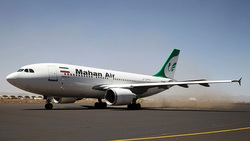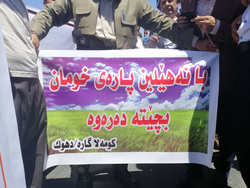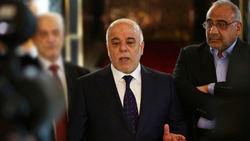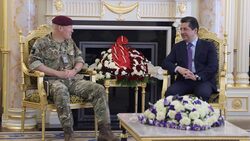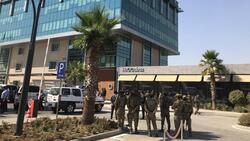Decoding the Steganography of the Explosive-laden messages: the ciphers and the risks
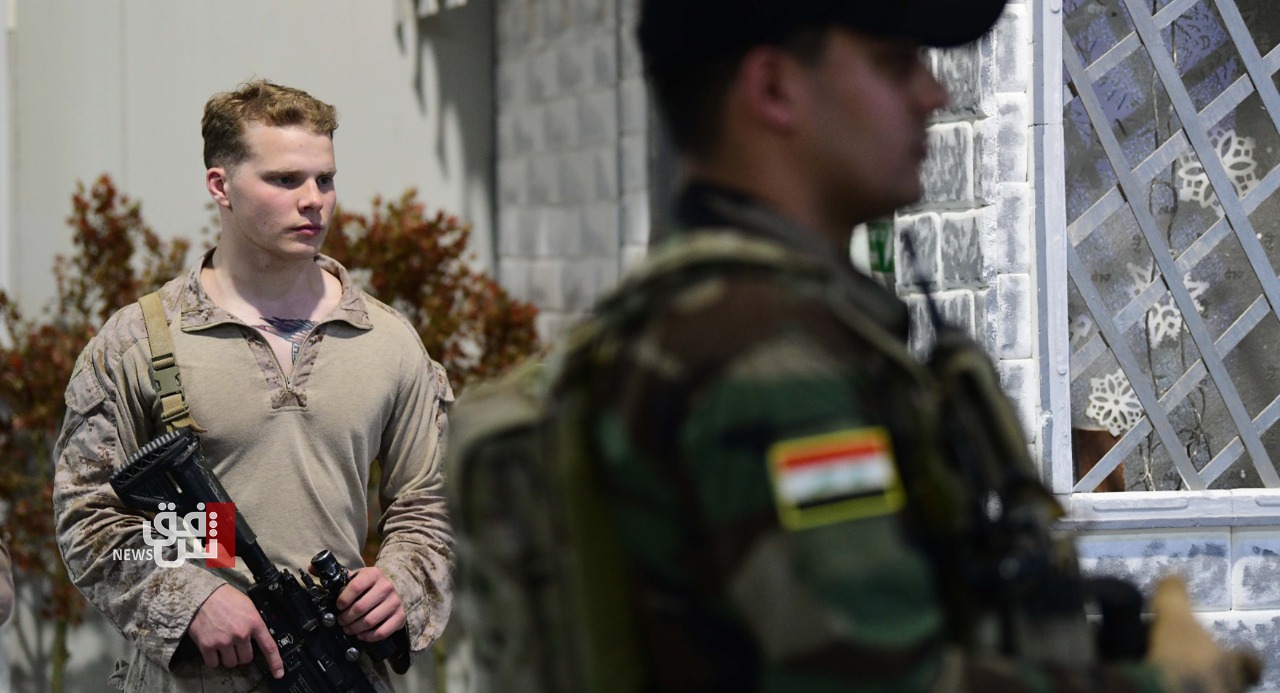
Shafaq News/ Even though the Steganography behind the messages mailed via booby-trapped Unmanned Aerial Vehicles (UAVs) to the U.S. consulate in Erbil is deciphered in a framework that accounts for regional conflicts, it also unfolds into an attempt to undermine the security and stability of the Kurdistan Region.
On June 25, three explosive-laden UAVs struck just a few kilometers far from the U.S. consulate in Erbil under-construction headquarters. To put that into context, the military section of the Erbil International Airport, where US-led international coalition forces are deployed, was targeted by this "unprecedented escalation in the types of arms" in mid-April.
Since April, Iran-backed Iraqi paramilitary factions have launched five drone attacks on U.S. installations in Iraq.
"The use of drones against certain targets in Erbil carries political and security messages to internal and external parties as well," Iraqi political and security expert Ahmed Al-Sharifi told Shafaq News Agency.
Therefore, the Friday-Saturday night attack marked a beginning of a new phase of the regional conflict from the gate of Erbil. The attacks by explosive-laden UAVs have shuffled the cards because U.S. forces are apparently vulnerable to this new type of attack, which puts more pressure on the U.S. defenses and increases the costs of extending the stay of the combat troops in both Iraq and Kurdistan.
In a recently published report, Forbes said that shooting down a low-cost camera-operated UAV that can target soldiers or planes on a tarmac requires a three million dollars Patriot missile. Moreover, unlike a ballistic missile, the site from which a UAV is launched, and consequently the attacker, is usually impossible to identify. However, the sender of those explosive-laden messages can still be identified by the recipient mailbox.
"The security messages are very obvious. The armed factions can reach any target despite security fortifications and air defenses. They are also threatening Kurdistan's security, not only the foreign presence," Al-Sharifi commented.
"The UAV attacks carry political messages to the actors in the Kurdistan Region that they should back the demands of the factions on the issue of foreign presence. They also aim to send messages to the Government of Baghdad and embarrass it before the international community," he added.
It was remarkable that the attack on Erbil came only a few hours before the Iraqi-Egyptian-Jordanian trilateral summit and the arrival of President Abdel Fattah Al-Sisi and King Abdullah II in Baghdad. The UAV attack reinforces a picture of Iraq's lack of the ability to control the security situation, while the summit leanings, among other things, are toward cooperation and coordination in the fields of security and counter-terrorism.
The first booby-trapped UAV attack on Erbil airport in April coincided with the conclusion of a session of the strategic dialogue between Baghdad and Washington, when Iraqis entered into talks to arrange the future and nature of the U.S. military presence. It also came after Kurdistan Regional President Nechirvan Barzani returned from a visit to Baghdad. He asserted the foundations of the relation between Baghdad and Erbil, including the arrangements to the security files, particularly in disputed territories.
On the U.S. sorties carried out on June 28, near the Iraqi-Syrian borders in al-Qaim, Ahmed Al-Sharifi, an expert on Iraqi political and security affairs, stated, "the persistence of such attacks will push the U.S. to take a more intense stance, and favor the military response over sanctions."
If Iran is really seeking to exhibit goodwill, given the optimism regarding a breakthrough in Vienna, those attacks raise alarms on Tehran's ability to harness its proxies in Iraq and the real influence Iran and the PMF Commission have on the armed factions loyal to them.
The political and security actors in Kurdistan will also have to try to decode the booby-trapped ciphers in order to forecast the extent the perpetrators of those attacks are willing to go.
